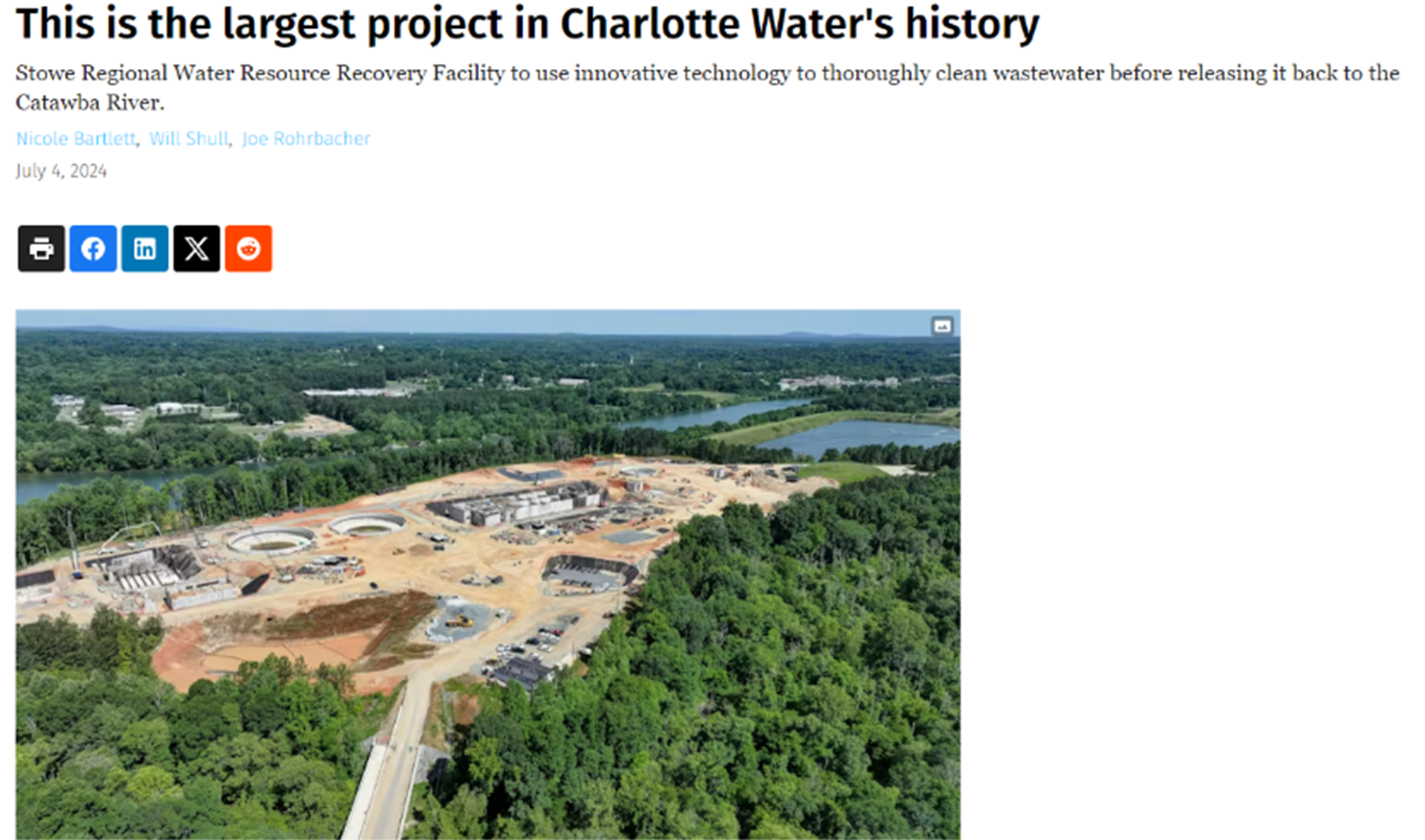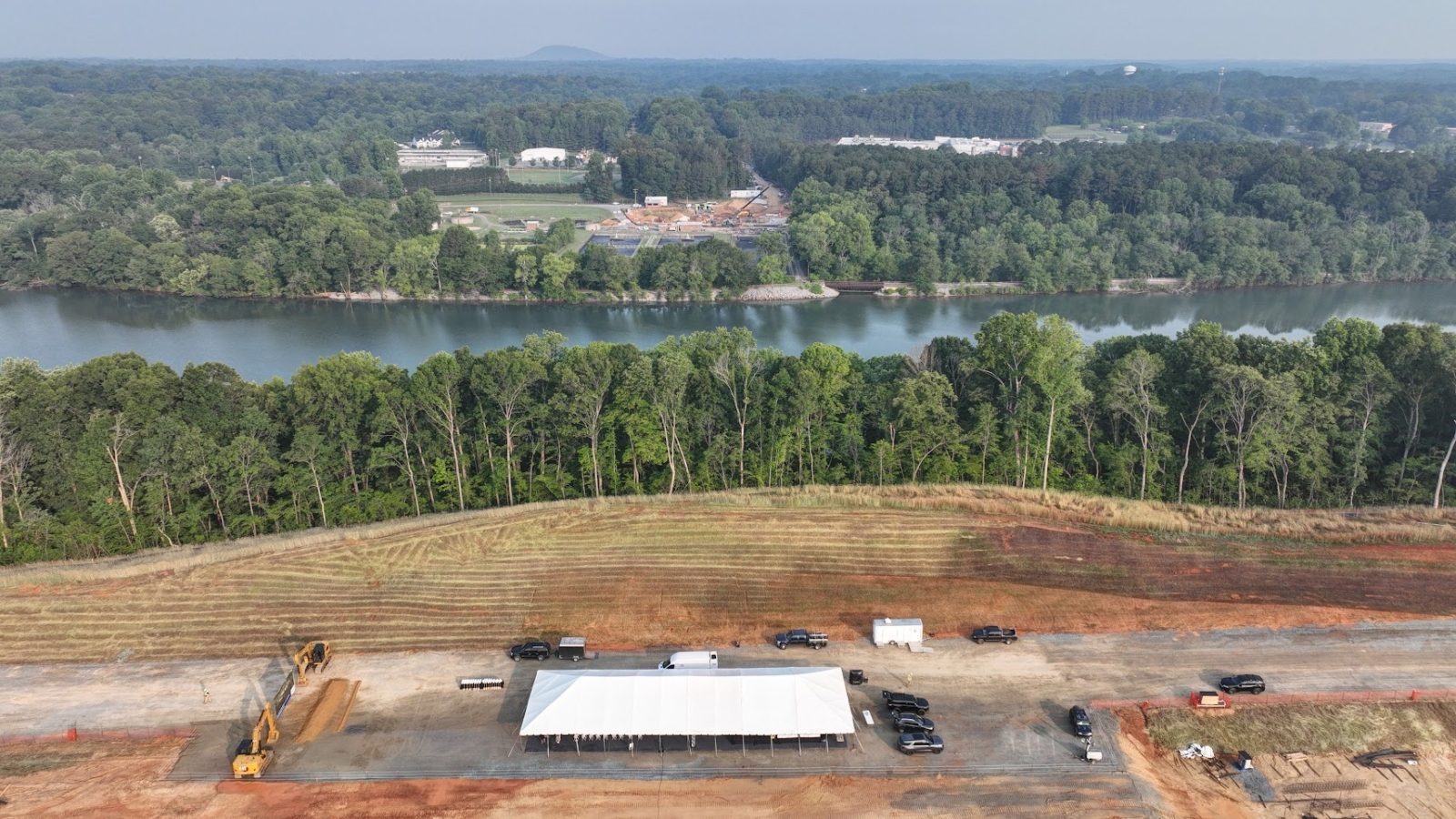By Victoria Phillips
Explore this new feature article by WasteWater Digest that delves into the technical aspects of our new Stowe Regional Water Resource Recovery Facility (Stowe RWRRF).

Read the WasteWater Digest Feature on the Stowe Regional Water Resource Recovery Facility.
Building with the future in mind.
As the Charlotte area continues to grow, the Stowe RWRRF is designed with the future in mind. Built with the capacity to clean 15 million gallons of water upon the site opening in 2025 and 25 million gallons of water as the Charlotte population grows, Stowe RWRRF will serve the growing demands of our city.
Models show that by 2050 our city is expected to grow by 50% and our Charlotte Water service area is projected to grow by 58%. This is why a future-forward design is paramount. In addition to being able to serve a growing population, the Stowe RWRRF will feature state-of-the-art cleaning technologies that will clean our wastewater to near drinking water standards helping keep our rivers pristine for present and future generations.
Teaming up to clean our wastewater.
Learn about our regional wastewater treatment plan involving the cities of Belmont, Mount Holly, and Charlotte. The cities of Belmont and Mount Holly have existing wastewater treatment facilities across the Catawba River from Stowe RWRRF. However, these facilities are aging and need to be retired. For this project, we have united with the cities of Belmont and Mount Holly to create a regional wastewater treatment facility at Stowe RWRRF. This union will consolidate wastewater treatment and increase treatment efficiency. To do this, we will pump water from these older facilities to Stowe RWRRF via a Horizontal Directional Drill. The process will send water, underneath the Catawba River, 3021 feet, to the new Stowe RWRRF.


State of the Art technology.
This new feature article by WasteWater Digest delves into the technical aspects of our new Stowe Regional Water Resource Recovery Facility (Stowe RWRRF).
Dive deep into the logistics of bedrock drilling using a Horizontal Directional Drill (HDD) and learn how the HDD drills through bedrock, 75 feet under the riverbed of the Catawba and Long Creek. Explore improved cleaning and purifying techniques that include settleability, aeration, and biological nutrient removal.

Learn more about our pipeline construction project on the Stowe RWRRF pipeline webpage.
So, what are you waiting for? Check out this amazing feature and learn more about the ins and outs of Stowe RWRRF at Stowe 101!

